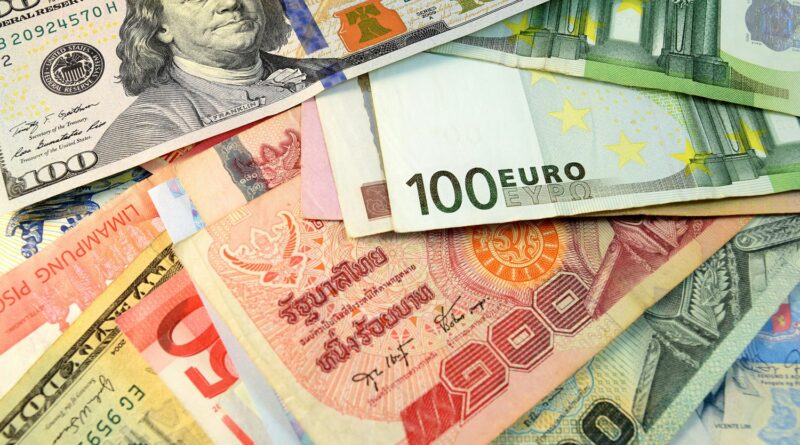Trade Today: FAQs About Currency Reserves
Currency reserves might sound like a term reserved for economists or central bankers, but understanding the basics can be useful for anyone interested in global markets or even forex trading online. Let’s explore some of the most frequently asked questions about currency reserves and break them down in simple terms.
What Are Currency Reserves?
Currency reserves are essentially a stockpile of foreign currencies held by a country’s central bank. These reserves typically include major currencies like the US dollar (USD), euro (EUR), and Japanese yen (JPY). Central banks keep these reserves to stabilize their own currency, manage international trade, and address economic challenges.
Think of it as a financial safety net for a country. If something unexpected happens, such as a sudden drop in the value of their currency, the central bank can dip into these reserves to steady the ship.
Why Do Countries Hold Currency Reserves?
Here are some of the main reasons:
- Stabilizing Currency Values: If a country’s currency starts to lose value, the central bank can sell foreign currency reserves to buy its own currency, strengthening its value.
- Facilitating International Trade: Most global trade is conducted in widely accepted currencies like the USD or EUR. Having reserves ensures that a country can pay for imports or settle trade debts.
- Crisis Management: In times of economic crisis, reserves can help cushion the blow by ensuring the country has funds to maintain essential services and imports.
- Building Investor Confidence: A healthy level of currency reserves signals economic stability, which can attract foreign investment.
How Are Currency Reserves Built?
Countries accumulate currency reserves through various means, including:
- Selling more goods abroad than they buy from other countries, leading to a trade surplus.
- Receiving foreign investments.
- Borrowing from international institutions or issuing government bonds.
For example, China has one of the largest currency reserves in the world due to its strong export economy.
What Is the Role of Gold in Currency Reserves?
Gold has been a part of currency reserves for centuries, and many central banks still keep a portion of their reserves in gold. Why? Because gold is seen as a stable asset that holds value over time, especially during economic uncertainty.
However, most modern reserves are dominated by foreign currencies, with gold playing a smaller role.
How Do Currency Reserves Affect Forex Trading Online?
For those dabbling in forex trading online, understanding currency reserves can provide insights into market movements. Here’s how:
- Central Bank Interventions: If a central bank uses its reserves to stabilize its currency, this can cause significant fluctuations in the forex market.
- Currency Strength: Countries with large reserves are often perceived as having stronger, more stable currencies, which can influence trading strategies.
For instance, when a central bank like the US Federal Reserve makes moves involving its dollar reserves, traders often adjust their positions accordingly.
How Much Is Enough?
There’s no one-size-fits-all answer to how much a country should hold in reserves. However, a common guideline is to have enough to cover at least three months’ worth of imports. Some countries, like Japan and Switzerland, keep massive reserves, while others manage with smaller amounts.
What Happens When Reserves Run Low?
Running low on reserves can spell trouble for a country. It might struggle to pay for essential imports or stabilize its currency. This can lead to inflation, economic instability, and a loss of investor confidence. In extreme cases, countries might need to borrow from international organizations like the International Monetary Fund (IMF).
Are All Currency Reserves the Same?
Not all reserves are created equal. The composition of reserves can vary significantly. For example:
- The US dollar dominates global reserves because it’s widely used in trade and is considered a safe-haven currency.
- The euro is the second most popular reserve currency, followed by the yen and the British pound (GBP).
- Emerging market currencies like the Chinese yuan (CNY) are gaining ground but still make up a smaller share.
How Does This Relate to You?
Even if you’re not a central banker or a seasoned trader, currency reserves can impact your everyday life. For example:
- Travel Costs: A country’s currency strength, influenced by reserves, can affect exchange rates, making your vacations abroad cheaper or more expensive.
- Economic Stability: Strong reserves contribute to a stable economy, which can mean lower inflation and steady prices for goods and services.
- Investment Opportunities: If you’re involved in forex trading online, understanding reserves can help you anticipate market trends and make informed decisions.
Take Away
Currency reserves may seem like a dry topic, but they play a crucial role in shaping the global economy. They provide economic stability, support international trade, and influence the forex market. For those exploring forex trading online, keeping an eye on currency reserves and central bank activities can offer valuable clues about market movements.
So, next time you hear about a central bank’s reserves in the news, you’ll know exactly why it matters – and maybe even how to turn that knowledge to your advantage!




